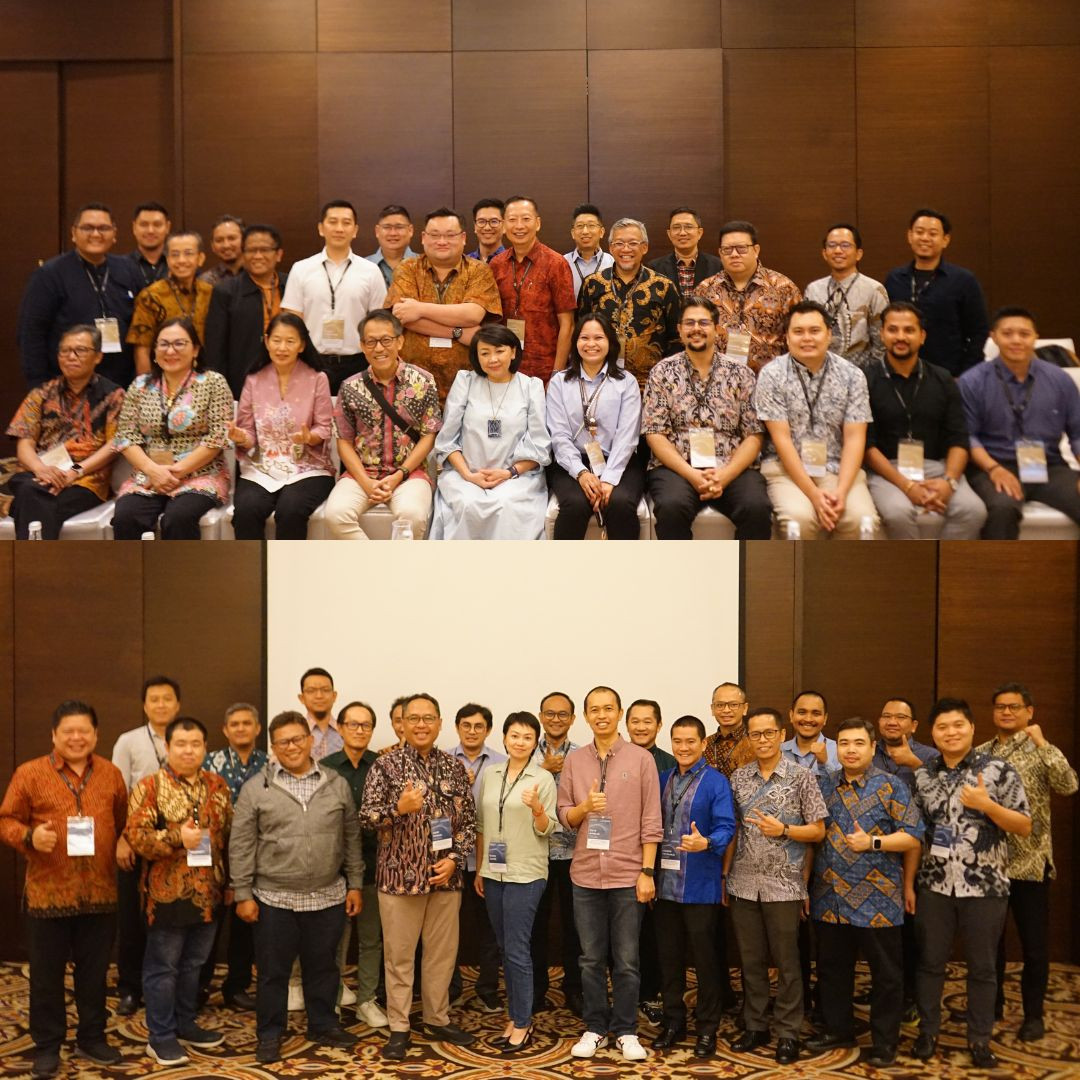Popular Reads
Top Results
Can't find what you're looking for?
View all search resultsPopular Reads
Top Results
Can't find what you're looking for?
View all search resultsFacing business uncertainty, cyber threats, iCIO Community holds FGD with IT leaders
Change text size
Gift Premium Articles
to Anyone
 IT leaders in Indonesia gather for a focus group discussion, as part of the iCIO Executive Leadership Forum and iCIO Awards 2024 series, to tackle business uncertainty and cyber threats. Themed “Adapting to Uncertainty: Empowering Business Resilience in a Dynamic Era”, the event featured parallel sessions on optimizing IT strategies and advancing cybersecurity innovations. (Courtesy of iCIO Community)
IT leaders in Indonesia gather for a focus group discussion, as part of the iCIO Executive Leadership Forum and iCIO Awards 2024 series, to tackle business uncertainty and cyber threats. Themed “Adapting to Uncertainty: Empowering Business Resilience in a Dynamic Era”, the event featured parallel sessions on optimizing IT strategies and advancing cybersecurity innovations. (Courtesy of iCIO Community)
T
he iCIO Community held a focus group discussion (FGD) with Indonesian IT leaders to discuss efforts to confront business uncertainty and cyber threats. The FGD is part of the iCIO Executive Leadership Forum and the iCIO Awards 2024 series, culminating on Nov. 6, 2024.
With the main theme of “Adapting to Uncertainty: Empowering Business Resilience in a Dynamic Era”, this series aims to provide in-depth insights and practical solutions for IT leaders in navigating business uncertainties in this dynamic era.
The FGD was conducted in two parallel sessions, each focusing on subtopics relevant to the challenges as well as the opportunities in the current world of information technology and cybersecurity. The first session explored the importance of optimizing IT strategies to navigate ever-changing business dynamics. The second session concentrated on the latest cybersecurity innovations, current challenges and the future direction of security measures.
First session: Effective IT strategies to face business uncertainties
In the first session, the discussion delved deeper into how companies can align their IT strategies with constantly evolving business goals. Amid slowing economic growth and tight IT budgets, IT leaders shared their experiences in prioritizing projects based on impact as the best strategy to balance innovation, security and cost-efficiency. They also discussed leveraging cost-effective technologies such as cloud computing and automation, along with strengthening strategic partnerships and outsourcing.
A key highlight of the session was a presentation from McKinsey, where their global survey revealed that over 90 percent of chief information officers (CIOs) were currently undergoing transformation by adopting technologies such as cloud storage, artificial intelligence and the internet of things (IoT). These technologies have become critical pillars to enhance companies’ productivity and efficiency.
Interestingly, the survey also found that 58 percent of top-performing companies preferred developing internal talent over outsourcing, marking a significant shift in how organizations address their technology needs.
“By building technological capabilities within the organization, they create more sustainable competitive advantage compared to relying on outsourcing,” said McKinsey & Company associate partner Vivek Jha.
Despite significant investments, 70 percent of IT transformations still fall short of expectations because of several factors, including limited funding and management bandwidth, partial implementation of transformations and failure to create a meaningful impact or deliver changes too late to make a difference.
To address these challenges, CIOs must ensure that transformations are guided by a clear vision and aligned with strategic business goals. It is crucial for CIOs to connect technology with business objectives considering the independencies between technology and operations, as well as build strong transformation capabilities within their organization.
Second session: Cybersecurity investment to tackle digital threats
The second session, meanwhile, focused on the critical need to build cybersecurity resilience in the face of rising global digital threats. It highlighted that increasing cyber-attacks, especially those targeting cloud technology, pose significant risks to organizations. Many still need to enhance their preparedness for these threats.
Key challenges include budget constraints, limited resources, technological complexities and insufficient management support. As cyber threats evolve, organizations must continually strengthen their defenses to counter increasingly sophisticated attacks.
PwC Indonesia risk assurance director Andrew Tirtadjaja presented findings from the 2024 Digital Trust Insights – Asia Pacific report, revealing that 51 percent of respondents viewed cloud-related attacks as their greatest concern. Additionally, over 40 percent of companies experienced data breaches resulting in losses exceeding $1 million in 2024, an increase from 31 percent the previous year.
Indonesia has introduced several regulations to enhance cybersecurity, such as Presidential Regulation No. 82/2022 on critical information infrastructure protection, and Law No. 27/2022 on personal data protection. These initiatives underscore the government’s commitment to tackling complex cyber threats and safeguarding personal data.
However, these regulations also challenge organizations to innovate continuously in their cybersecurity strategies. According to the PwC survey, the top three concerns for C-level executives are cloud-related attacks, attacks on connected devices (IoT), as well as hack and lead operations
As organizations shift from on-premises systems to the cloud, they become appealing targets for hackers, often underestimating their responsibility for security. Common pitfalls include inadequate access controls, neglecting the principle of least privilege, and inconsistent security standards.
“Close collaboration between industry and regulators is key to minimizing digital risks in the future,” Andrew Tirtadjaja stated.
These topics of strategies to face business uncertainty and cyberattacks will be further explored at the iCIO Executive Leadership Forum and iCIO Awards 2024, where IT leaders will gain strategic insights through keynote presentations and panel discussions centered on “Adapting to Uncertainty: Empowering Business Resilience in a Dynamic Era”.
The iCIO Community is a network of chief information officers (ICOs) and executives in the ICT sector from companies and organizations in Indonesia, designed as a platform for sharing best practices and leadership in ICT. For more information about the iCIO Community, visit: http://www.ciocommunity.org.









